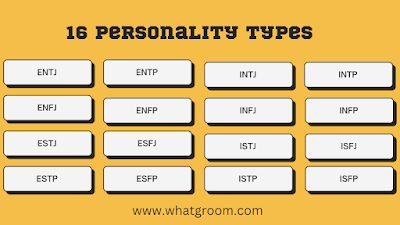The idea of determining the type of personality is very popular in the world. Since ancient times, scientists and philosophers have been attracted by the idea of classifying the phenomena of the surrounding world.
Attempts of the first classifications of a person's character and the identification of different types of personality can be found in Hippocrates (460 BC), who identified 4 types of temperament:
- Choleric
- Phlegmatic person
- sanguine
- melancholic
The most interesting descriptions of personality types appear in the writings of psychologists in the 19th and 21st centuries. It is these approaches that we will consider in the article.
What is a personality type?
Personality type is a set of personal qualities and psychological characteristics to describe the similarities between a certain category of people.
Personality types are an integral part of a particular type classification.
They are used by psychologists to describe the differences and similarities between people, to simplify the understanding of people's characters, to predict behavior, and to highlight common patterns and relationships in studies
of different types of people.
Why know your personality type?
Determining your personality type helps you understand what kind of person you are, what strengths you have, how you differ from other people. Knowing your strengths means that you can apply it in life, make it more harmonious and achieve success.
A separate direction is the understanding of the personality types of other people. This is more difficult, especially if you do not have the opportunity to test a person for a personality type. Understanding other people's personality types is used in personnel management, communications, team building, negotiation, sales, and other situations.
Classification of psychotypes in clinical psychology
These approaches reflect the development of psychological thought in the 19th and 20th centuries and are listed in the chronological order of their publications. Clinical psychologists rely on these theories in their work.
Personality types according to Leonhard:
- Hyperthymic - desire for activity, pursuit of experiences, optimism, focus on luck;
- Dysthymic - lethargy, emphasizing ethical aspects, worries and fears, focus on failure;
- Affectively labile - mutual compensation of traits, focus on various standards;
- Affectively exalted - inspiration, elevated feelings, erection of emotions into a cult;
- Anxious (fearful) - fearfulness, timidity, humility;
- Emotive - kindness, fearfulness, compassion.
- Demonstrative - self-confidence, vanity, boasting, lies, flattery, focus on one's own Self as a standard;
- Pedantic - indecision, conscientiousness, hypochondria, fear of inconsistency of one's own I with ideals;
- Stuck - suspicion, resentment, vanity, the transition from recovery to despair;
- Excitable - short temper, heaviness, pedantry, focus on instincts
Personality types according to Lichko:
- Astheno-neurotic - they are characterized by increased fatigue and irritability, hypochondria, affective outbursts and mood variability;
- Hyperthymic - do not tolerate the monotony of the routine, are constantly in high spirits, tend to communicate, are active;
- Hysteroid - inherent egocentrism, a thirst to be in the spotlight, dependent self-esteem;
- Conformal - adapts to others, does not have his own opinion, agrees with others, strives to "be like everyone else";
- Labile - sensual, dependent on attention and praise, frequent change in mood;
- Unstable - emotional, excitable, gravitate towards entertainment (alcohol, drugs, sex);
- Psych asthenic - scrupulous and reflective, hesitate in making decisions, reasonable and cautious;
- Sensitive - overly sensitive, shy, timid, often they have a sense of their own inferiority;
- Cycloid - characterized by a change in two phases - hyperthymia (elevated mood) and sub depression (mood decline);
- Schizoid - closed, alert, deep introverts ;
- Epileptoid - excitability, aggression, meticulousness, scrupulousness, dominance, the desire to subjugate and control people.
Classification of psychic types in business
These approaches actively use HR in their practice. You may be asked to take a personality test when applying for a job.
Personality type according to Adizes
The Adizes personality type shows what role you are best in running a business . In total, there are 4 roles according to Adizes and a person cannot perform them all equally well.
Type "Manufacturer (P)"
This type of personality is focused on creating material wealth and achieving results. He loves to work with his hands, create products and services for consumers. Dislikes to delegate or control.Type "Administrator (A)"
This type of personality standardizes, streamlines processes. Best of all, he creates rules, algorithms, instructions. Brings order to the system and processes."Entrepreneur (E)"
This type of personality generates ideas, experiments, tries new things. He does not want to stop there and is focused on the future.- Type "Integrator (I)" This personality type brings people together to work towards a common goal. He cares about corporate culture, unity and common spirit.
Belbin personality type
The Belbin test shows which roles you tend to take on when working in a team . There are 9 team roles according to Belbin, these roles are situational, therefore a person can take on different roles in different teams. The team role correlates with the type of person's personality.
DISC personality type
The DISC technique shows what kind of behavioral style you have . Styles are situational, which means a person can act differently in different situations. DISC is used to define styles and fine-tune conversations such as sales or negotiations.
- "Achieving" (D) People of this type act quickly and make decisions. They do not stand on ceremony, they are self-confident, straightforward. They prefer to take leadership positions, to tell people what to do. They always take the lead in negotiations.
"Initiating" ( I )
These are emotional and active people. They do not go into their pocket for a word, they are always open to communication and ready to support. Such people have many interests and acquaintances, often switch from one to another, so they may seem superficial. Other people see them as charismatic."Promoting (S)"
People of this type are focused on relationships and caring for others. They are soft, pliable, tolerant, uncritical. They value stability and orderliness, do not like changes, complex theorems and abstract reasoning."Constructive" (C)
People with high "C" adhere to the rules and regulations. They adapt to the environment and adapt to it. Methodical, pedantic, executive. Conduct a thorough analysis before making a decision. These are people of a logical warehouse, so they are often reproached for low emotionality.
Classification of psych types in popular psychology
Personality type according to Myers-Briggs
The most scientific and credible personality type test is the MBTI or the Myers-Briggs Personality Type Test . According to this approach, there are 16 personality types.
- Warlord or ENTJ
- Inventor or ENTP
- Analyst or INTJ
- Innovator or INTP
- Mentor or ENFJ
- Communicator or ENFP
- Seer or INFJ
- Idealist or INFP
- Administrator or ESTJ
- Teacher or ESFJ
- ISTJ Inspector
- ISFJ Guardian
- Entrepreneur or ESTP
- Soul of the company or ESFP
- Master or ISTP
- Artist or ISFP





.jpg)

0 Comments